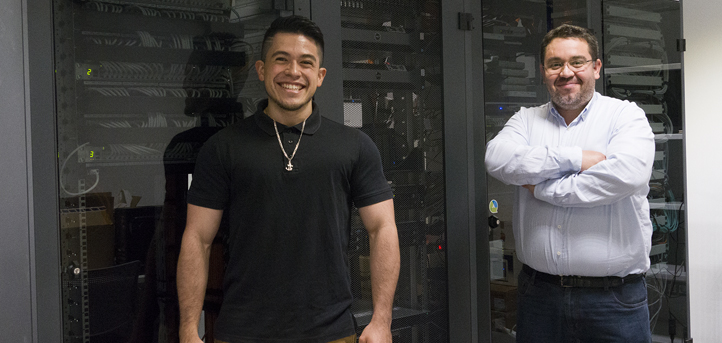The IT Systems department of the European University of the Atlantic, via cloud technology, has developed a beta version for a virtual laboratory that grants students access to the same digital tools they have on campus, from any place with an Internet connection.
This was done in response to the needs imposed by remote work and online education during quarantine, thus, overcoming a series of limitations that break down physical barriers and economic and social issues as well, since the user’s computer brand, processor or even operating system do not matter, requiring only an Internet connection for remote work under similar conditions to those offered by the campus in the Science and Technology Park of Cantabria.
The four laboratories already operating under this new format are a complement to the virtual campus, where the subject contents, student-teacher communication systems, virtual tutorials, etc., are located.
According to UNEATLANTICO’s IT Systems Manager, Juan Tortajada, “it is still in development process, but the beta version will help us demonstrate its impact. This previous version requires a backup and registration system for the system, but the first official and fully integrated version will be completed by the end of 2020”. For Tortajada, the virtual laboratory system “changes the educational paradigm as it provides a model perfectly adapted to the new environment”.
This first stage covers the main activities found in certain subjects from those degrees that compose the Faculty of Social Sciences and Humanities, specifically in the Communications area, and a few other subjects from the Higher Polytechnic School. “In any case,” the project director stated, “we are prepared to expand our options to other degrees and advise professors on how best to accommodate their needs.”
In addition to the IT Systems manager, Rodrigo Zaldaña has participated in the project as a scrum master, and department interns Martha Márquez and Bruno Castillo as the development team, with Fredy Trigueros and José Antonio Marroquín as technical support and maintenance.


